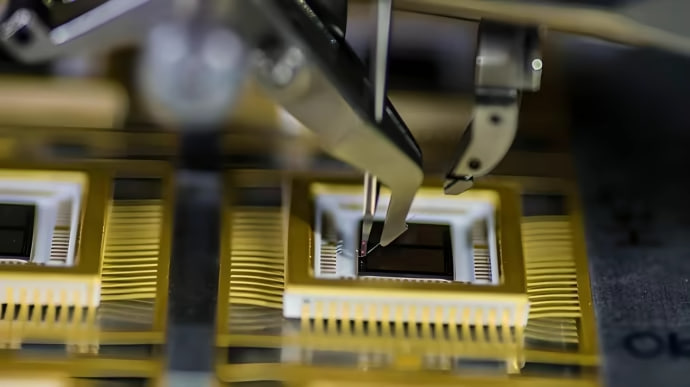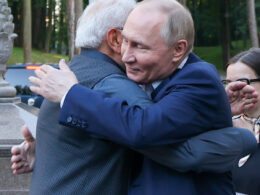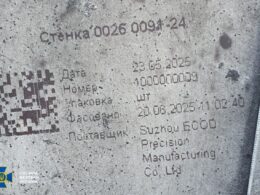US Commerce Secretary Gina Raimondo said on 8 May that export controls are significantly slowing down Russia's war machine.
Voice of America reported, citing Raimondo, that the US “imposed export controls on nearly 700 types of dual-use goods to Russia and added nearly 100 Chinese companies to the sanctions list for assisting Russia in circumventing export controls.”
Republican senators from Texas, Jake Ellzey, and Tony Gonzales, said that American microchips were found in weapons used by Russia, Iran, and North Korean drones employed by Russia against Ukraine. "It seems they can use chips we consider harmless commercial chips for lethal purposes," Ellzey said.
Raimondo said that US export restrictions "have significantly slowed Russia down" and pointed out that due to limited access to Western microchips, Russia "is having to use chips from breast pumps, refrigerators, and similar devices, and that's exactly what they're doing because our initial restrictions are working."
She added that Russians are forced to use commercial chips and reconfigure their equipment. They also have to rely on Iran and China to obtain such microchips.
According to Elina Ribakova, a researcher at the Peterson Institute and the Kyiv School of Economics, American components reach Russia through two channels. The first is supplies from countries like the UAE, Türkiye, Hong Kong, and possibly Kazakhstan, and then to Russia. The second mechanism involves goods supplied directly from manufacturing facilities in China, Malaysia, the Philippines, and other Asian countries with many low-cost producers. Such goods may then go to Hong Kong, at least on paper, and then to Russia, Ribakova said.
If acted upon swiftly, Russia's access to 95% of components can be cut off, Ribakova believes.
NOS media reported in January that microchips made by Dutch companies ended up in Russia as many millions of Western-made chips went through intermediary companies to Russia from the beginning of the full-scale invasion of Ukraine through December 2022.
How foreign microchips end up in Russian tanks despite sanctions





